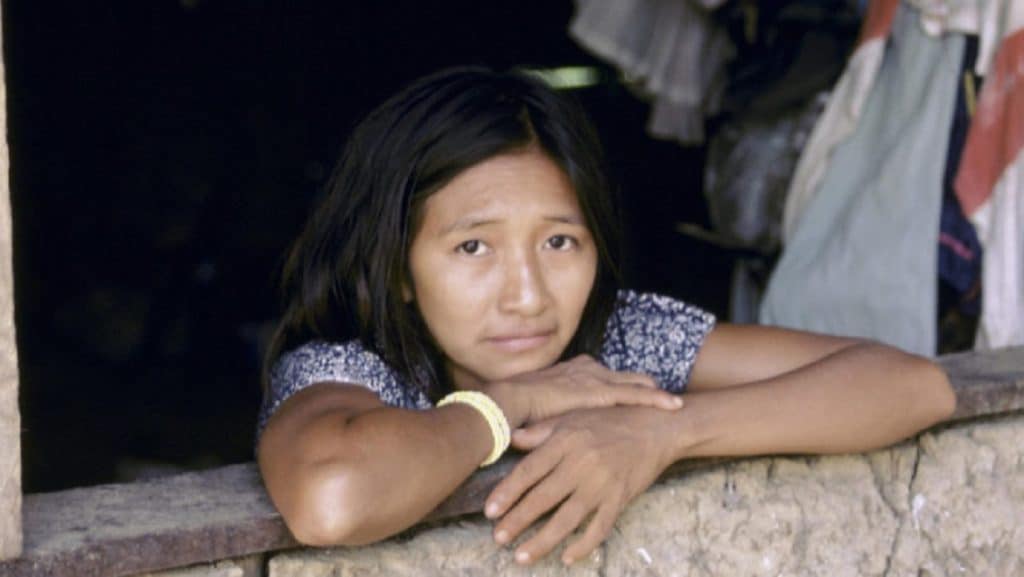By María Isabel Niño-Rada (Professional Specialized in Presidential Counseling for Human Rights and International Affairs)
Latin America became very quickly in the epicenter of the largest number of Covid-19 cases in the world, which represents particular challenges for the region in defending the rights to life and health of its population. Multiple international and regional organizations have recognized the differentiated impacts of the pandemic on certain groups that have historically been vulnerable, especially women and girls.
 Americas is the most unequal region on the planet, characterized by deep social gaps in all the States of the region. More than one in four Latin American households are headed by women, the highest rate in the world. In Latin America and the Caribbean, ECLAC has projected that during 2020, the number of people living in poverty would increase by almost 30 million people and another 16 million would enter in conditions of extreme poverty as a consequence of the pandemic, which could especially affect women. Likewise, the Inter-American Commission on Human Rights (IACHR) and its Office of the Special Rapporteur for Economic, Social, Cultural, and Economic Rights (OSRESCER) have identified that women’s jobs are more exposed to being lost, or their conditions to be deteriorated, or to suffer labor abuse.
Americas is the most unequal region on the planet, characterized by deep social gaps in all the States of the region. More than one in four Latin American households are headed by women, the highest rate in the world. In Latin America and the Caribbean, ECLAC has projected that during 2020, the number of people living in poverty would increase by almost 30 million people and another 16 million would enter in conditions of extreme poverty as a consequence of the pandemic, which could especially affect women. Likewise, the Inter-American Commission on Human Rights (IACHR) and its Office of the Special Rapporteur for Economic, Social, Cultural, and Economic Rights (OSRESCER) have identified that women’s jobs are more exposed to being lost, or their conditions to be deteriorated, or to suffer labor abuse.
Women and girls in the region are disproportionately affected by the pandemic. It is worrying to note the increase in cases of domestic violence against women due to quarantine; likewise, it has been identified the lack of access to family planning methods and menstrual supplies, which are essential items to guarantee the sexual and reproductive rights of women; on the same note, the inequalities that make women more likely to live in poverty and without access to essential services have been accentuated, since they are much more susceptible than men to work in informal jobs, without medical coverage, savings or pensions. Compared to 93% of men, only 67% of women in Latin America and the Caribbean participate in the formal workforce and more than 126 million work in the informal sector.
The Organization of American States (OAS), through the Inter-American Commission of Women (CIM), identified that this crisis has deepened the existing gender inequalities in the region, which turns out to be especially serious considering that women are half of the region’s population and are highly concentrated in sectors affected by the crisis, such as the health or home care sector. Before the onset of the disease, Latin American women already spent almost 3 times more time on unpaid care work than men.
In consequence, it is necessary that the recovery policies of Covid-19 in Latin America have a gender perspective. It is important to eradicate the increasing violence against women and girls; work for women’s and girls’ access to education and health; as well as seeking that women are heard and represented equally in all decision-making spheres to continue advocating for their empowerment.
CARE International and UN Women issued some recommendations to mitigate gender inequality in the region, highlighting the need for humanitarian actors and policy makers to ensure that a gender perspective is included throughout the Covid-19 response and recovery process. In addition, States are recommended to systematically collect sex and age disaggregated data in all areas relevant to the COVID-19 response in health, social, economic and political terms; address the unequal division of work related to home caring and unpaid domestic work, as an essential element of the emergency public health and economic response and offer adequate socio-economic support to women and girls who provide care services as a basis of all recovery policies, through cash transfer programs and / or other humanitarian supports.
The Organization of American States (OAS), through the Inter-American Commission of Women (CIM), proposed guidelines for the design of actions and public policies based on the principles of equality and non-discrimination and the need to implement affirmative action measures in favor of women. Due to the high concentration of women in the sectors affected by the crisis, the document focuses on the importance of the equal participation of women in decision-making.
On the other hand, the Inter-American Commission on Human Rights (IACHR) and its Office of the Special Rapporteur for Economic, Social, Cultural, and Economic Rights (OSRESCER) recommended that the States of the region include evaluations of impact on human rights in their political decisions and fiscal policy strategies, ensuring that they focus on guaranteeing financing for the protection of the rights of population in situations of poverty or extreme poverty, taking into account the historical lack of economic autonomy of women and their central role in the caring tasks.
The implementation of this group of measures by the Latin American States within the framework of the Covid-19 pandemic, would shine a light so that in the recovery process of the societies of the region, will be perceived a more equitable and inclusive future for women and girls. The key is that the protection of their rights extends in the long term and transcends the crisis that the world is going through.
Author: María Isabel Niño Rada (Professional Specialized in Presidential Council for Human Rights and International Affairs; Lawyer and professional in International Relations from the Universidad del Rosario, Colombia; Diploma in International Protection of the Human Rights of Women from the Universidad Austral, Argentina. She is currently enrolled in a Postgraduate degree in Constitutional Law at the Pontificia Universidad Javeriana. Bogotá D.C. Area, Colombia)
(The views expressed in this article belong only to the author and do not necessarily reflect the views of World Geostrategic Insights)
Image Credit: Banco Mundial//Yosef Hada







